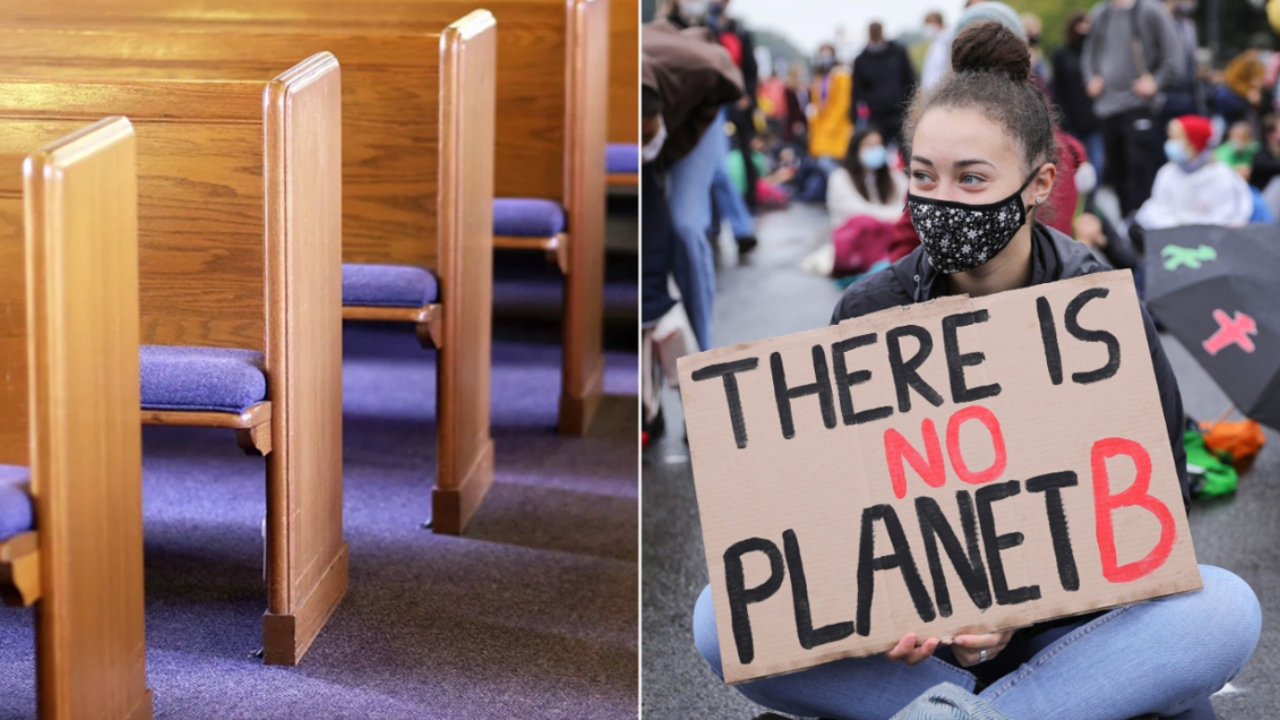Liberal church network pushes ‘climate justice’ narrative during Holy Week

During Holy Week, one of the world’s leading liberal ecumenical Christian organizations, the World Council of Churches (WCC), published a post promoting climate change activism. The post, titled “Training shows climate justice a moral imperative for churches,” highlighted the importance of churches taking action on climate justice. The WCC, in collaboration with the National Council of Churches in Bangladesh, organized a climate litigation training in Dhaka to explore how churches can contribute more to climate justice.
In a subsequent post, the WCC emphasized the interconnected nature of the climate crisis and called for a holistic approach to addressing issues related to land, water, and food justice. The organization’s general secretary, Rev. Prof. Dr. Jerry Pillay, underscored the moral imperative for churches to advocate for system changes that are urgently needed to combat climate change.
The WCC also unveiled a new resource on legal tools for climate justice, focusing on holding financial actors accountable for their role in perpetuating the climate crisis. While the organization’s efforts have been praised by some, there has been criticism from experts who believe that the focus on climate justice during Holy Week detracts from the traditional religious observances of the season.
Dan Turner, founder and executive director of Power The Future, likened the push for climate change activism to a battle against paganism, suggesting that the emphasis on environmental issues is a distortion of Christian teachings on stewardship of the land. Similarly, Gabriella Hoffman, from the Independent Women’s Forum, expressed concerns that the climate justice movement prioritizes nature over human needs, potentially leading to negative consequences.
Steve Cortes, founder of the League of American Workers, criticized the WCC for diverting attention from reflecting on Christ’s sacrifice during Holy Week and instead focusing on climate activism. He argued that the church should prioritize spreading the Gospel rather than engaging in divisive legal battles.
The WCC, which has a membership of 352 church bodies from over 120 countries, has a history of political activism on behalf of liberal causes. The organization’s involvement in controversial issues, such as the Israeli-Palestinian conflict, has drawn scrutiny from critics. Despite the criticism, the WCC remains committed to advocating for climate justice and addressing the root causes of environmental degradation.
In conclusion, the WCC’s promotion of climate change activism during Holy Week has sparked debate among experts and observers. While some view the organization’s efforts as a moral imperative for churches, others believe that the focus on climate justice detracts from the religious significance of the season. As the WCC continues to advocate for climate action, the debate over the role of churches in addressing environmental issues is likely to intensify.




